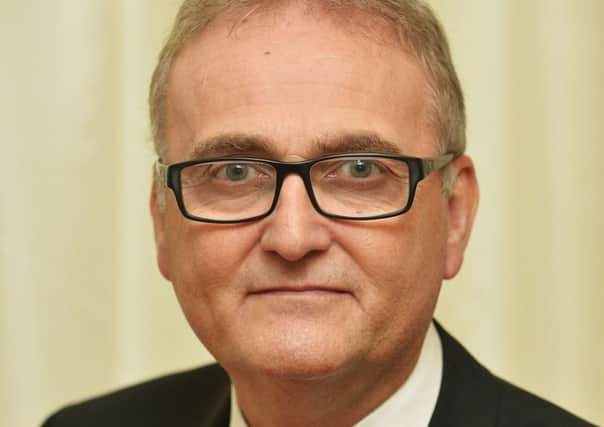Downgraded forecast by BCC dents hopes of recovery


The downgrade for 2015 GDP expansion to 2.3 per cent from 2.7 per cent comes just days after data showed Britain’s key services sector suffered its sharpest slowdown in growth for nearly four years in May.
Meanwhile, the CBI employers group is expected to cut its forecasts for gross domestic product (GDP) this year in its latest update next Monday, following weaker-than-expected growth in the first quarter that has also hit the manufacturing sector.
Advertisement
Hide AdAdvertisement
Hide Ad“It is always disappointing when we have to downgrade our growth forecast, but the unexpectedly low figures from the Office for National Statistics (ONS) on Q1 2015 make it unavoidable,” John Longworth, director general of the British Chambers of Commerce, said.
However, the BCC remained upbeat, saying it believed the slowdown was temporary and that prospects remain steady in the medium term. The organisation, which represents thousands of big, medium and small companies in all sectors, forecasts growth in GDP of 2.6 per cent in 2016 and 2017.
“While this (recent) slowdown will serve as a warning about the strength of our economic recovery, we believe the UK will secure steady growth in the years to come,” Longworth said.
It came after the Bank of England’s monetary policy committee (MPC) left interest rates at historic lows of 0.5 per cent at its meeting yesterday, the first since official figures showed Britain had entered into a deflationary environment.
The BCC said that it expected the first rise in interest rates, which have remained unchanged for six years, in the second quarter of 2016.
Longworth added: “It is right to keep interest rates at their current level for the next year at least, and any increases thereafter should be slow and steady. After having stable, predictable rates for years, we don’t need the shock treatment of great leaps to the cost of borrowing.”
The BCC chief said the area of most concern for his members was the ballooning trade deficit. “The growth we see is built on consumer spend and this has been a systemic weakness for years,” he observed.
Longworth said the deficit between what we export and what we import as a country was “an economic time-bomb waiting to go off”, and needed to be tackled by getting more British businesses exporting their goods and services.
Advertisement
Hide AdAdvertisement
Hide AdMore positively, the organisation forecast that earnings would continue to rise over the next three years. It predicts total earnings growth, including bonuses, of 2.4 per cent this year, 4 per cent in 2016 and 4.5 per cent in 2017.
It expects unemployment to continue to fall over that period. David Kern, chief economist at the BCC, said: “In spite of the downgrading of our 2015 growth forecast, UK prospects remain solid overall. The slowdown this year is likely to be temporary.”
Kern said earlier falls in oil, food and other commodity prices continued to support UK growth, while the flexible labour market was a major source of strength for the economy. He added: “International comparisons also show the UK is in a good position. In 2014, the UK grew faster than other G7 economies.
“Our new forecast suggests that we will remain near the top of the G7 league table over the next three years.”
However, Kern warned that, globally, economic confidence was “too dependent” on abnormally low interest rates and major quantitative easing programmes.
The latter pump money into economies by central banks buying bonds from banks to give them more money to lend to households and businesses.